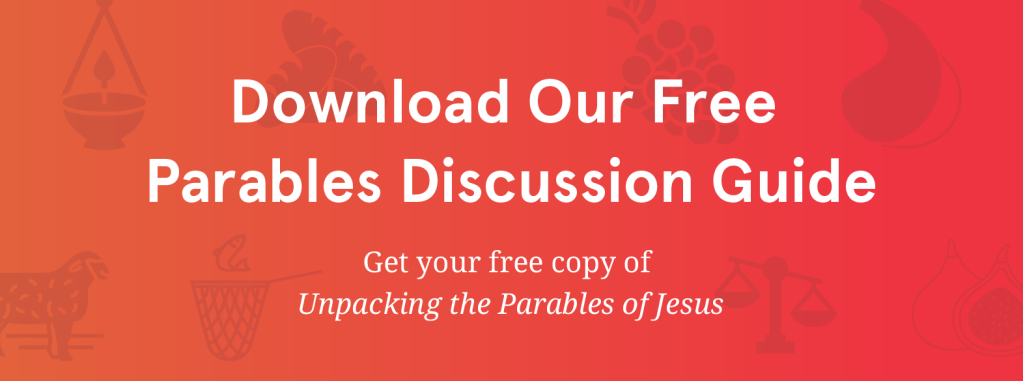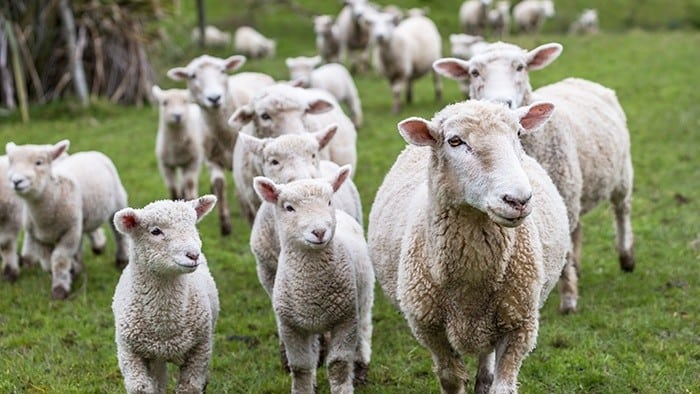It’s not always easy to understand Jesus’s parables. Sometimes we get lost in the details. That’s why it’s important not to stray too far from the main point Jesus is trying to make-and the parable of the sheep and the goats is a good example.
Examining the parable
When the Son of Man comes in his glory, and all the angels with him, he will sit on his glorious throne. All the nations will be gathered before him, and he will separate the people one from another as a shepherd separates the sheep from the goats. He will put the sheep on his right and the goats on his left (Matthew 25:31-33).
Throughout Jesus’s ministry, He talked about Himself as their good shepherd, and the people who followed Him as sheep. The imagery was apt. Sheep are known to be defenseless and reliant upon a shepherd for care, protection, and direction.
In this parable, the King separates the sheep from the goats. Unlike sheep, goats are known for being headstrong, self-reliant, and independent. For the purposes of Jesus’s story, they contrast perfectly with sheep.
Then the King will say to those on his right, “Come, you who are blessed by my Father; take your inheritance, the kingdom prepared for you since the creation of the world. For I was hungry and you gave me something to eat, I was thirsty and you gave me something to drink, I was a stranger and you invited me in, I needed clothes and you clothed me, I was sick and you looked after me, I was in prison and you came to visit me.”
Then the righteous will answer him, “Lord, when did we see you hungry and feed you, or thirsty and give you something to drink? When did we see you a stranger and invite you in, or needing clothes and clothe you? When did we see you sick or in prison and go to visit you?”
The King will reply, “Truly I tell you, whatever you did for one of the least of these brothers and sisters of mine, you did for me” (Matthew 25:34-40).
The “sheep” are given their kingdom inheritance for the services they rendered to the King. When the King names off specific things they did for Him, they’re surprised. “When did we feed you, clothe you, or visit you in prison,” they ask. And He tells them that the kindnesses that they did for others, they were actually doing for Him.
As if that didn’t drive His point home, Jesus continues His story:
Then he will say to those on his left, “Depart from me, you who are cursed, into the eternal fire prepared for the devil and his angels. For I was hungry and you gave me nothing to eat, I was thirsty and you gave me nothing to drink, I was a stranger and you did not invite me in, I needed clothes and you did not clothe me, I was sick and in prison and you did not look after me.”
They also will answer, “Lord, when did we see you hungry or thirsty or a stranger or needing clothes or sick or in prison, and did not help you?”
He will reply, “Truly I tell you, whatever you did not do for one of the least of these, you did not do for me.”
Then they will go away to eternal punishment, but the righteous to eternal life.
Jesus gives the same message from the negative perspective. The goats are condemned because of what they didn’t do. To their shame, they didn’t realize that passing up opportunities to do good for others was the same as passing up opportunities to serve their King. This mistake cost them their inheritance.
Is salvation based on works?
Because this parable ties the sheep and the goats’ behavior to their eternal destiny, it’s easy to walk away assuming that our eternal destination rests on what we do or fail to do. But that’s not really the point Jesus is driving at.
The Gospel’s message is clear throughout Scripture that “all who did receive him, to those who believed in his name, he gave the right to become children of God” (John 1:12). It is by faith, through grace, that we are reconciled to God.
We just can’t miss out on the important message that salvation should transform us into the kinds of people who serve their King by doing good for others.
So, what can we take away from this parable? Here are four quick lessons we could learn from the story of the sheep and the goats:

Leading a small group or Bible study?
Download a free copy of Unpacking the Parables of Jesus. This guide is packed with the necessary tools to lead your group through an insightful discussion of Jesus’ parables. You’ll find critical insights and thoughtful questions to help guide your group through Jesus’ essential teachings. You’ll also receive our bi-weekly JFP News, packed with films and resources to help you share Jesus’ story with the world.
1. The sheep didn’t know what they did
It’s impressive to realize that the sheep are surprised by this turn of events. They weren’t serving others to be noticed or to curry favor with the King. They were doing good because it was in their nature to care for others.
2. Little things matter a lot
The King commends the sheep for everything from feeding the hungry to clothing the naked. But in there, He recognizes something as simple as a drink given to the thirsty. The point is that there is no service too small for Jesus to remember.
3. Don’t leave good undone
The King’s interaction with the goats is the most sobering aspect of this parable. It’s one thing to celebrate the positive and kind things someone does. It’s another thing entirely to realize that the King is paying attention to opportunities to help others that we neglect to capitalize on.
It’s a mistake to assume that becoming more Christlike is merely a case of stopping bad behaviors. The more like Jesus we become, the more our lives are poured out in service to others.
4. We have to put in the effort
So many of the kindnesses the King mentions are ones the sheep would have had to go out of their way to perform. No one just happens upon someone in prison and stops for a visit. You have to make a plan to spend time with someone in that position. If we want to be sheep, we’ll be on the lookout for ways to love people around us.
Becoming people who do good
It’s by God’s grace that we are reconciled to God. There is absolutely nothing we can do to earn the privilege of becoming God’s children. But that doesn’t mean that what we do doesn’t matter. Jesus explained it to the Pharisees this way:
“Make a tree good and its fruit will be good, or make a tree bad and its fruit will be bad, for a tree is recognized by its fruit” (Matthew 12:33).
In the story of the sheep and goats, Jesus wants us to understand that our choices reveal the kingdom to whom we belong.
